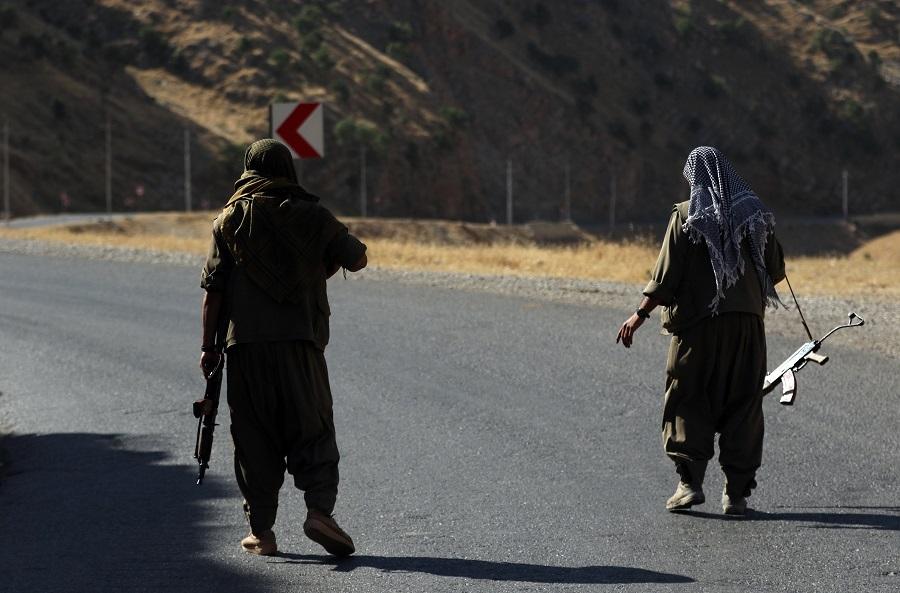ANKARA: While Moscow and Damascus urge the repatriation of Syrian refugees based on improving living conditions in the country, their call seems largely unheard by Syrians who think that the conditions on the ground are not yet encouraging enough for them to return.
Just in November 2018, some 10,232 Syrians have been caught by Turkish border troops crossing illegally into Turkey.
Experts underline that the repatriation process should be carried out voluntarily and with consideration for the socio-economic, political and security risks during the restoration process of the country. Otherwise, it may be premature.
The Syrian regime recently set up a coordination committee for the repatriation of displaced Syrian nationals to their original cities and towns.
Moscow also prepared a plan in July for coordinating the return of Syrian refugees to safe areas in their homelands. The plan was based on the establishment of working groups with Amman and Beirut, with the presence of US and Russian officials.
The reopening of the Nassib border crossing between Syria and Jordan in mid-October has also encouraged Assad government to issue calls for the Syrian nationals to return home.
Following the seven-year-long civil war, about 5.6 million Syrians are believed to have fled abroad to neighboring countries, mostly to Turkey, Lebanon and Jordan, while some preferred to set off for a new life in Europe.
About 114,000 of them have been repatriated this year, according to data announced by Moscow.
The risk of facing maltreatment when they return to government-held areas also caused concern among Syrian refugee communities.
The UK-based Syrian Observatory for Human Rights (SOHR) has announced that since October more than 700 returnees, mostly from Turkey, Lebanon and Jordan, have been arrested and 230 of them were detained in government-controlled parts of Syria.
Omar Kadkoy, a Syrian-origin researcher on refugee integration at Ankara-based think tank TEPAV, thinks that conditions for repatriation aren’t ripe yet.
“Many Syrians link the return to political change, but status quo has the upper hand. Plus the risk of being drafted to military, the non-functioning economy, and the lack of safety despite all the recent developments create unappealing conditions for return,” he told Arab News.
To encourage the return of Syrians, Assad regime has recently offered an amnesty for army deserters who will allegedly not be punished but will still have to serve the mandatory two years of military service.
However, those who joined opposition groups against regime forces are exempted from the amnesty, sparking concerns that it aims to attract only Assad supporters home.
According to Kadkoy, who has been living in Ankara for four years, the tempo of life is faster and harder in Turkey, but better compared to where Syrians come from and Syrians are getting used to this complex environment.
“This means they’re settling down after seven years and building their future: Kids in schools and universities, parents filling different layers of the labor market, and flourishing businesses,” he noted.
Syrian entrepreneurs in Turkey established 151 new companies in October mainly in the wholesale sector. Concentrating their activities in Istanbul, they invested about 34 million Turkish liras (about $6.3 million) and opened employment opportunities to many.
On the other hand, thousands of Turkish families reportedly began filing requests to adopt orphan Syrian children in Turkey. There are currently about 1 million Syrian refugee children of school age in the country.
According to Kenneth Roth, executive director of Human Rights Watch, there are three major factors preventing many Syrian refugees from feeling that it is safe for them to return home.
“First, the Assad government is continuing to seize and demolish homes in areas that had been held by anti-government forces, meaning that for many Syrian refugees there is no home to return to,” Roth told Arab News.
Second, Syrian prisons remain full of people vulnerable to torture and execution.
“Few will want to return home if they face a serious risk of detention,” Roth noted, adding that the Assad government has not accounted for the thousands who have “disappeared” in its prisons, many of whom have been killed or died due to horrible treatment.
Roth also said that there has been no accountability whatsoever for the Assad government’s deliberate strategy of bombing or besieging and starving civilian areas.
“Few will have any confidence that such atrocities will not resume if there has been no justice for the senior officials who directed them,” he added.
Ammar Hamou, a Jordan-based Syrian journalist, thinks that although Syria and Russia are trying to send assurances to Syrian refugees to encourage them to return, in fact the policy of the Syrian regime is contrary to official statements.
“The country is still in the grip of security, arrests are present, and reserve recruitment exists. One of my friends is a refugee in Jordan. He visited Syria two weeks ago, and when he decided to return he was surprised that he was wanted for military service,” he told Arab News.




